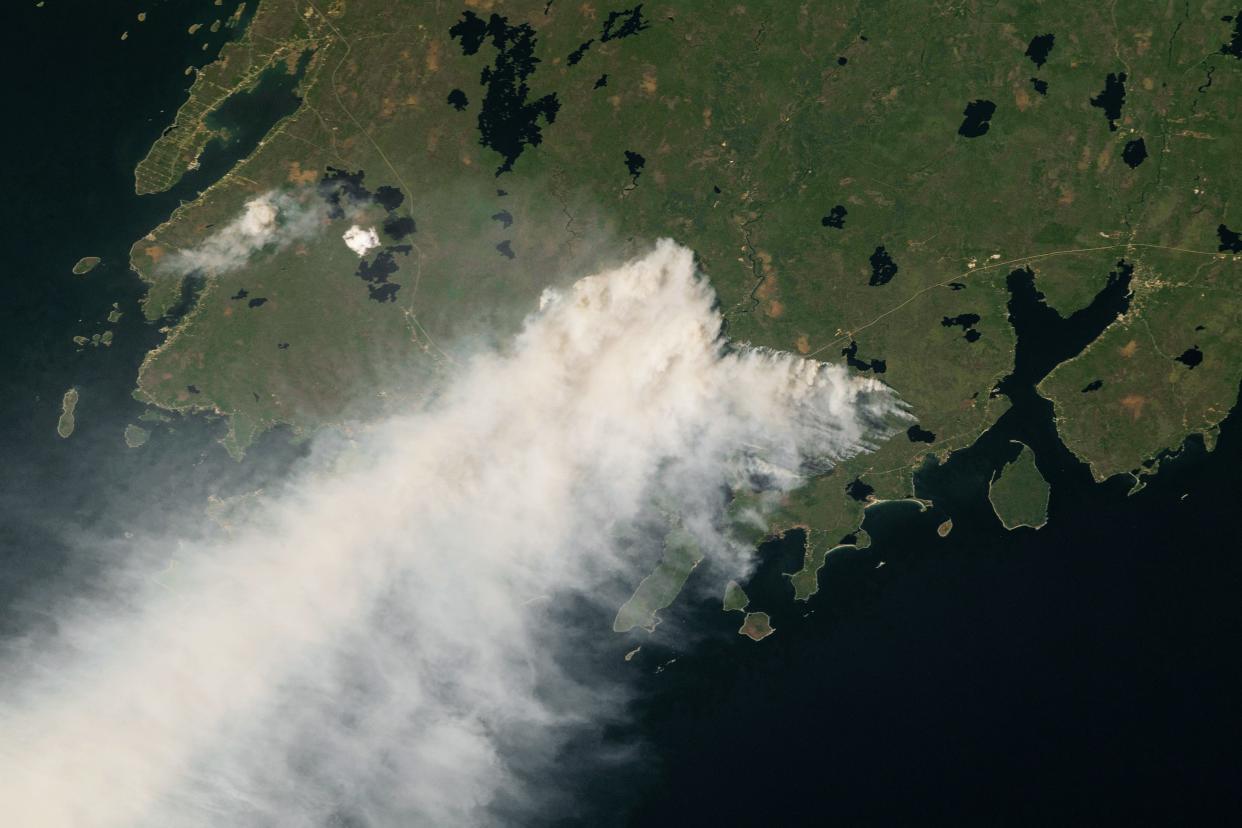Smoke, haze impact US air quality as Canadian wildfires continue to rage
Millions of Americans are exposed to unsafe air quality levels as Eastern Canada experiences one of its worst reported wildfires.
More than 6.7 million Canadian acres have already burned in 2023, federal officials announced last week, marking one of the worst starts to wildfire season. Around 14,000 people were forced to evacuate Quebec with over 150 fires, CBC News reported. Officials said firefighters contained a wildfire in Nova Scotia on Sunday but that another one was still burning out of control covering nearly 100 square miles, according to the Associated Press.
Blazes from Quebec and Nova Scotia have caused hazy skies from the Ohio Valley to North Carolina and South Carolina. Parts of the Upper Peninsula of Michigan, Southeastern Minnesota and all of Wisconsin have air quality advisories in effect Monday.
“Today's air quality advisory has been extended to the entire state of Wisconsin, ending at 11:59 p.m., due to wildfire smoke originating from Canada,” the Wisconsin Department of Natural Resources tweeted Monday afternoon.

Minnesota’s Pollution Control Agency tweeted that the Quebec wildfires continue to “linger across east central and southeast Minnesota today due to very light winds.” The agency added that evening thunderstorms should improve the air quality by dispersing smoke particles.
Americans from the Midwest and the Northeast received alerts about the air quality in their areas, particularly warning “sensitive groups” such as older adults, children or those with pre-existing respiratory conditions like asthma.
The health risk of air pollution caused by wildfire smoke continues to worsen. The number of people who experienced at least one day with unhealthy air quality because of smoke increased over 27 times over the last decade, according to a Stanford University research study published last fall.
Air pollution can cause inflammation, weakens someone’s immune system and can increase the risk of asthma, lung cancer or other chronic lung diseases.
Map: Wildfire, smoke impacts United States, Canada
More coverage from USA TODAY Network
US wildfires Wildfire near Grayling, Michigan, burns more than 3,000 acres; 85% contained
Election 2024 Tim Scott gets booed on The View over the DeSantis fight with Disney, defends GOP on race
School choice Oklahoma board approves nation's first state-funded Catholic school
Virginia plane crash Pilot of wayward plane that crashed in Virginia was slumped over, fighter jet pilots said
This article originally appeared on USA TODAY: Canada wildfires worsen air pollution in Midwest and northeastern US
